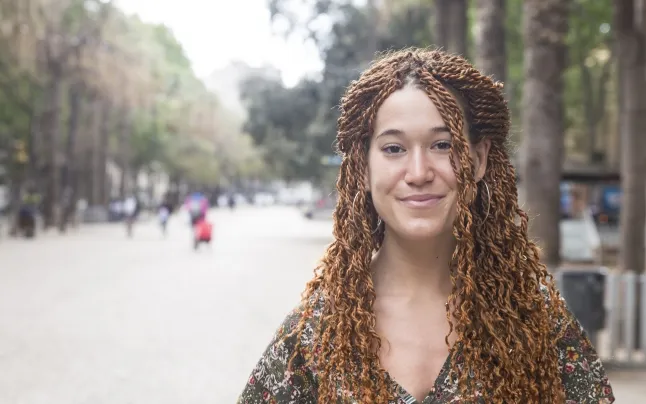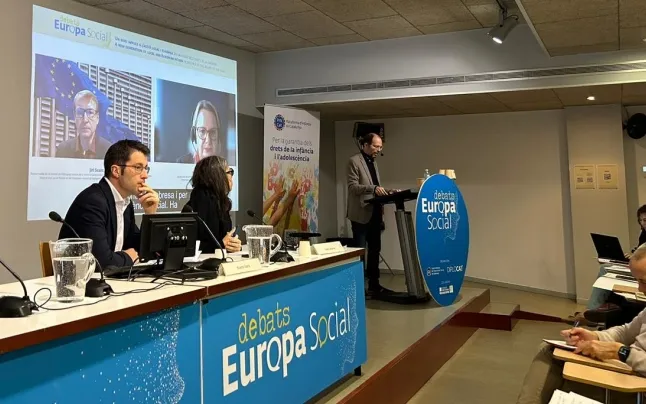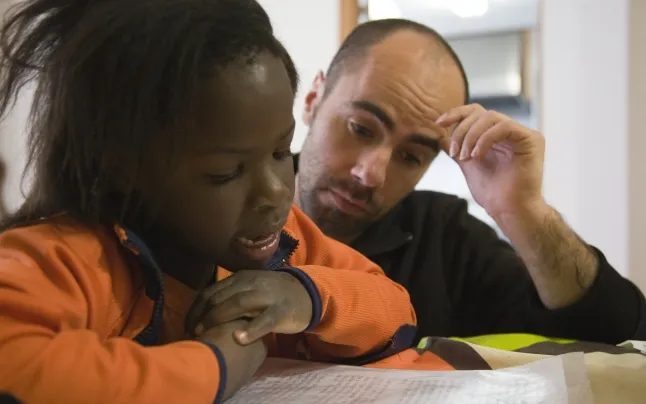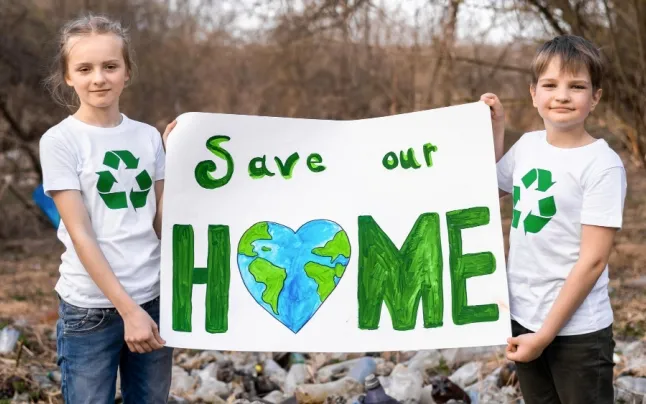We interview the founder of the organisation Un llapis per Ghana (A pencil for Ghana), which aims to guarantee education for the 24 children and youths living at the Ryvanz-Mia orphanage.
What is Ryvanz-Mia?
Ryvanz-Mia is the orphanage founded by Mama, its director, when she lost her husband and two of her children in a very short time span. Mama, and orphan herself, was left alone in a very big house and wanted to open it up. She hadn’t been able to go to school and considered education was extremely important, and she says it is all she can offer. The first time I visited, the water supply was cut off. She said: “It’s been a long time since we last paid our bills; first it’s the schooling bills. If necessary, we can wash in the river but these children will study”. Her strong faith deeply moved me.
You set up the organisation when you were 19.
'Un llapis per Ghana' was a mistake. I never intended to create an NGO; I’m quite a “hater” of the NGO concept and of volunteering. I discovered this orphanage, I fell in love with it and though I couldn’t continue living as if I’d never been there. So I talked to two childhood friends and we started the project, small and local. We have no intention to make it grow. It was created to fulfil 24 dreams and will stop existing once they disappear or are fulfilled. The idea is to empower them so in the future they won’t need us and we’d love to visit as if we were visiting relatives living abroad.
But you are an NGO.
We are in the process of becoming an association, and we work under the umbrella of a larger NGO called Esport Solidari Internacional (ESI), but we don’t speak the same language. We aren’t yet an association because we can’t agree on such a basic thing as choosing a chairperson. We work horizontally.
Why “a pencil”?
When I returned after my first visit I was depressed for a whole month, crying on my sofa; so I searched for a way to cover food and schooling costs. I remembered an anecdote. One day, I dragged the desks so they could do their homework, but they were very slow and I am very impatient. I said: “How come you are so slow?” One of the girls, Mawusie pointed at a pencil and said “We only have one, so we take turns. That is why we are slow”. So I thought that this pencil could be a metaphor. We share the dream, what differs is the tool to write it.
How do you finance these dreams?
We’ve done all sorts of things. We organise events and talk at schools; we organise solidarity tea parties or exchange letters. It’s interesting because the kids are extremely powerful. Whenever we have an event we have a video-call with the orphanage or send a video and like that we keep in touch with Ghana every day.
It is also possible to donate for these children’s education but we don’t let anyone sponsor a child from here. We don’t want to be a project that allows you to sponsor a kid’s education to put your mind at rest. Sponsoring means accompanying. Also, donations go to the project and not to an individual so that they all have the same possibilities. With this we cover schooling expenses, but not medical emergencies, clothes, electricity, water or materials.
Who is part of the organisation?
There are six of us now, and then local volunteers.
How does volunteering work?
We use another name, we call it an exchange. They don’t go there to teach anything, they are there to learn. They don’t do anything essential because the orphanage works just fine without white people and we want it to remain that way. They give a hand with homework, for instance. Mama once told me: “I hope your project will find open ears and hearts willing to listen”, so this is what I say to volunteers: “go there and offer hugs and ears; get to know them and listen to what they’d like to be when they grow up”.
There is quite some discussion on the role of NGOs. Do you come across contradictions when explaining your works?
It’s important to know your privileges and how you want to use them. I like to believe we are quite deconstructed. We carefully think about every sentence before posting on social media. We’re scared of marketing poverty and sorrow. I haven’t met poor people there, what I do see is very determined and resourceful people.







Add new comment